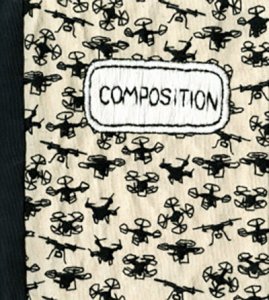
Through this exhibit, we invite you to explore more than two centuries of diaries and diary-like documents from across the holdings of the Special Collections Research Center, ranging from privately emotive to publicly informative, from offering news reportage to depicting emotional processing, and from factual to purely fictional. As you read, consider how these journals embody elements of both private and public writing and the permeability between those spheres.
Diaries, journals, daily planners, notebooks: these ephemeral writings provide documentation of private lives and thoughts that can otherwise be difficult to find in the historical record. But does “private” necessarily imply unfiltered and unmediated? Many theorists have noted that the diarist is both writer and reader, both private and public self. Therefore the content and form of diaries are created for future reading, even if only by a future version of the self. The ambiguity of a diary’s audience is heightened in the case of published diaries. The form suggests that we, as readers, are accessing raw, unfiltered thoughts, but rounds of revision are common, and often essential to clearly convey the intended meaning. Even further from our notions of authentic, private writing, fictional diaries are written solely to be published and read by the public, but use the diary form to draw the reader into a particular relationship with the text and its protagonist.
Diaries, journals, daily planners, notebooks: these ephemeral writings provide documentation of private lives and thoughts that can otherwise be difficult to find in the historical record. But does “private” necessarily imply unfiltered and unmediated? Many theorists have noted that the diarist is both writer and reader, both private and public self. Therefore the content and form of diaries are created for future reading, even if only by a future version of the self. The ambiguity of a diary’s audience is heightened in the case of published diaries. The form suggests that we, as readers, are accessing raw, unfiltered thoughts, but rounds of revision are common, and often essential to clearly convey the intended meaning. Even further from our notions of authentic, private writing, fictional diaries are written solely to be published and read by the public, but use the diary form to draw the reader into a particular relationship with the text and its protagonist.